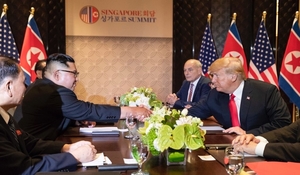Negotiating with the Leaders of the Democratic People’s Republic of Korea: Inferences from Thematic Content Analysis

Negotiating with the Leaders of the Democratic People’s Republic of Korea: Inferences from Thematic Content Analysis
Authors | Editors: Morrison, B. (University of British Columbia); Suedfeld, P. (University of British Columbia)
Executive Summary
The UBC research group assessed psychological processes of six DPRK leaders, including Kim Jong-un, using thematic content analysis for integrative complexity and motive imagery, and Profiler Plus® computer-scored measures of Belief in Ability to Control Events (BACE), Distrust, and Self-Confidence. Despite some individual differences, in general the leaders were low in complexity, higher in power motivation than other motives, and high in BACE and distrust. This pattern indicates closed-mindedness, rigid thinking and planning, lack of perceptiveness in considering or trusting outsiders’ viewpoints and goals, a need for rapid and definite closure, and low probability of negotiating mutual concessions or flexibility in interaction. When under increased tension, the DPRK leaders’ profiles showed even higher distrust and need for power, somewhat increased affiliation need, and reduced motivation for achievement. These patterns
indicate a low likelihood of significant changes of basic beliefs, motives, and strategies, despite possible overt assertions of such changes.
Download Publication
Comments